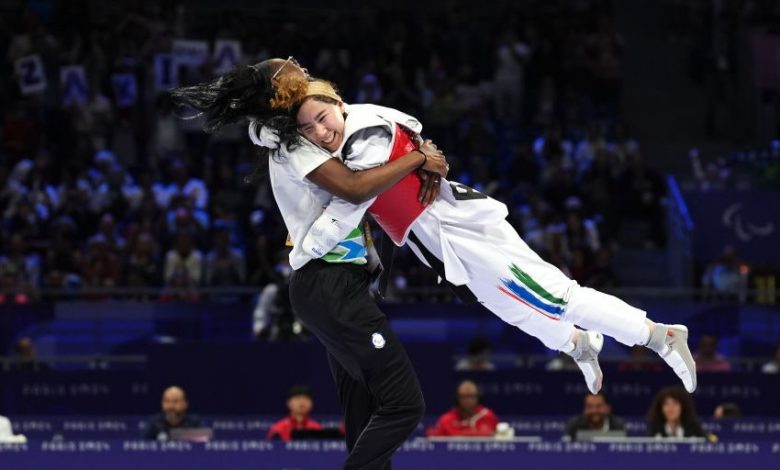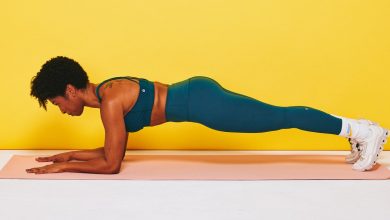Zakia Khudadadi Just Became the First Athlete From the Refugee Paralympic Team to Win a Medal

Three years ago, Zakia Khudadadi was hiding from the Taliban, training in secret in her back garden at home in Afghanistan. Today, she is a bronze medalist and just made history as the first athlete from the Refugee Paralympic Team to win a medal at the Paralympics.
On Thursday at the Grand Palais in Paris, the 25-year-old defeated Turkey’s Nurcihan Ekinci in their match to claim bronze in the tae kwon do women’s 47g category. After losing in the quarterfinals, Khudadadi emerged victorious in her makeup match to claim a place on the podium when Morocco’s Naoual Laarif withdrew from the bronze medal competition.
“It was a surreal moment; my heart started racing when I realized I had won the bronze,” Khudadadi told AP News. “I went through so much to get here. This medal is for all the women of Afghanistan and all the refugees of the world. I hope that one day there will be peace in my country.”
DeFodi Images/Getty Images
Khudadadi was born without one forearm and began practicing tae kwon do in secret at a hidden gym in Herat, Afghanistan, when she was 11 years old.
Following the rise of the Taliban in 2021, Khudadadi was blocked from competing in the sport she loves. According to CNN, she was unable to leave the country at first and was forced into hiding, continuing to train for the Paralympics in secret from her back garden. In a moment of desperation, Khudadadi released a video plea that went viral. Eventually, she was granted a place on Spain’s evacuee list and airlifted to safety by the Australian Air Force.
“I was told that, if I stayed, the Taliban would come and take me because I was a female athlete disobeying their rules,” she told CNN. “I had only one choice—to leave.”
One week after fleeing Kabul, Khudadadi made her Paralympic debut in Tokyo as the first woman to represent Afghanistan since the 2004 Paralympic Games in Athens. She also became the first Afghan woman to compete in tae kwon do at the Paralympics. Khudadadi competes in the K44 category, which refers to athletes who have unilateral disability of an arm or equivalent limitation due to an orthopedic disability or absence of toes.
As she approached her second Paralympic Games, Khudadadi said she wanted to show the strength of Afghan women in the face of so many obstacles. “I survived so much to get to this point. All the dangers I have faced, from the Taliban, the armed checkpoints and even worse. So now that I am here, I will use the platform to give a voice to those who can’t be heard back in Afghanistan,” she told CNN.
Today, Khudadadi lives in Paris, where she trains with coach Haby Niare, a former tae kwon do world champion, at INSEP, France’s national institute of sport. Niare told AP News that Khudadadi overcame a number of injuries to achieve her goal on the sport’s biggest stage.
Steph Chambers/Getty Images
Following her breakthrough performance at the Grand Palais, Khudadadi said she hopes her bronze medal inspires Afghan women, who are being systematically excluded from public life under Taliban rule, and that they “win one day.”
“I want to give this medal to the whole world,” she told CNN. “I hope that one day there will be freedom in my country, for all the world, for all the girls, for all the women, for all the refugees in the world. And that all of us work towards that, for liberty and equality.”
SELF is your go-to source for all things Paralympics. Follow our coverage of the Paris Games here.
Related:
- It Shouldn’t Be This Expensive to Be a Paralympic Athlete
- What Is Goalball—And Why Are All the Athletes Wearing Black-Out Goggles?
- If You’re Not Following the Perfectly Unserious Paralympics TikTok Account, You’re Missing Out
Get more of SELF’s great health coverage delivered right to your inbox—for free.



